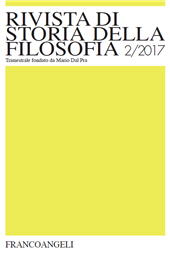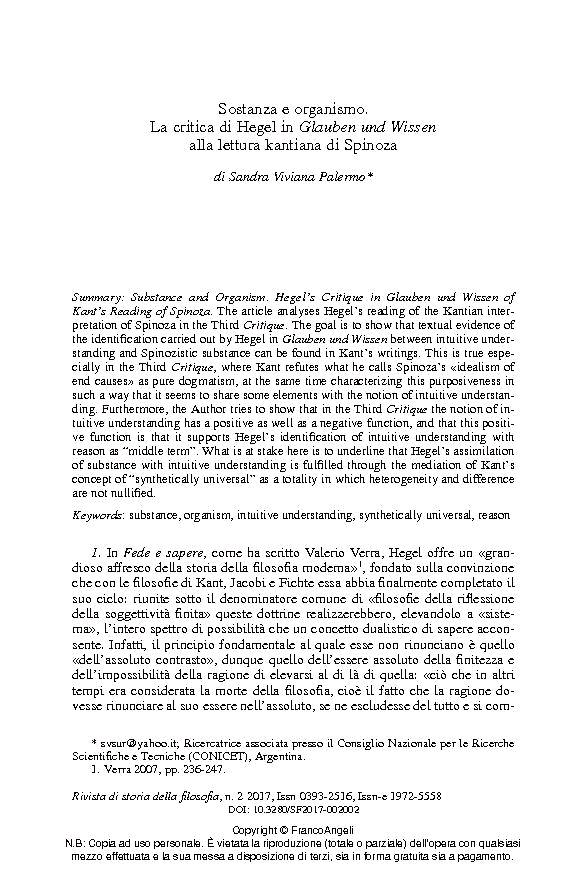Sostanza e organismo : la critica di Hegel in Glauben und Wissen alla lettura kantiana di Spinoza
245-265 p.
Substance and Organism. Hegel's Critique in Glauben und Wissen of Kant's Reading of Spinoza. The article analyses Hegel's reading of the Kantian interpretation of Spinoza in the Third Critique. The goal is to show that textual evidence of the identification carried out by Hegel in Glauben und Wissen between intuitive understanding and Spinozistic substance can be found in Kant's writings. This is true especially in the Third Critique, where Kant refutes what he calls Spinoza's «idealism of end causes» as pure dogmatism, at the same time characterizing this purposiveness in such a way that it seems to share some elements with the notion of intuitive understanding.
Furthermore, the Author tries to show that in the Third Critique the notion of intuitive understanding has a positive as well as a negative function, and that this positive function is that it supports Hegel's identification of intuitive understanding with reason as "middle term". What is at stake here is to underline that Hegel's assimilation of substance with intuitive understanding is fulfilled through the mediation of Kant's concept of "synthetically universal" as a totality in which heterogeneity and difference are not nullified. [Publisher's Text].
Fait partie de
Rivista di storia della filosofia : LXXII, 2, 2017-
Articles du même numéro (disponibles individuellement)
-
Informations
Code DOI : 10.3280/SF2017-002002
ISSN: 1972-5558
KEYWORDS
- Substance, organism, intuitive understanding, synthetically universal, reason



